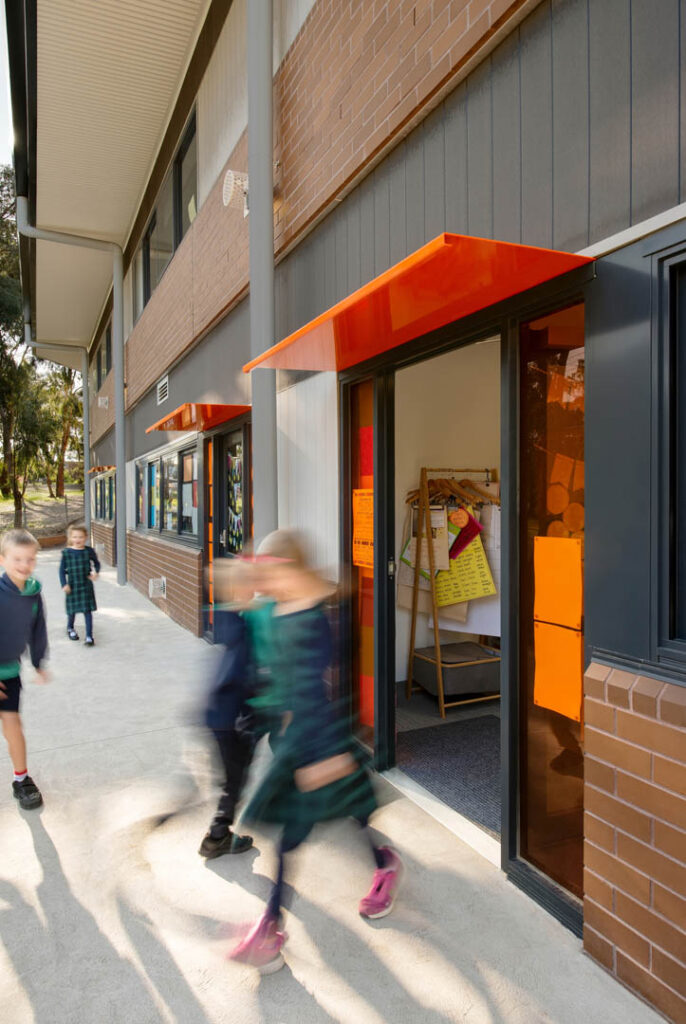Montmorency South Primary School
Traditional Custodians:
Wurundjeri.
Typology:
Education
Location:
Montmorency, Victoria, Australia
Project value:
$8.75m
Builder:
Johns Lyng Commercial Builders
Collaborators:
O’Neil Consulting Group
Thomas Consulting Group
John Patrick Landscape Architects
ABDEC Group
Wilde and Woollard Quantity Surveying
Emma Cross Photographer
Establishing the return brief.
Initial planning involved an analysis of dual methods of development – refurbishment versus new build. Following cost, life-cycle and operational reviews, the project moved forward, developing a new two-storey building on the current (and operational) site, with demolition of existing buildings post construction.
The upgrade to Montmorency Primary School included a two storey admin & learning building, with general office, all staff and student support spaces, library, S.T.E.A.M. space, and 12 flexible classrooms divided into three learning communities. Landscape works included new sports field, car park, gardens and outdoor learning areas. Extensive relocatable management required to facilitate decanting and concurrent school operations.
The school forecourt was left open without fencing, to promote improved connection and participation by parents and carers.


Space for Everyone.
The Learning Community’s were designed to provide flexibility and customisation to each community teaching team. While each community has four home classes, that community also has direct access to collaborative resource spaces and wet areas (including individual gender neutral powder rooms). This allows the teaching group to adapt and utilise these resources based on their team planning and student driven needs, within a close and supervised proximity.

Space for Better.
One of the biggest contributors to unsustainable practices in construction is material waste. Our design minimised this impact by working to a metric module that allows us to align and dimension all elements within the building to their natural size. This means, bricks don’t need cutting, the entirety of a wall lining panel is used, room sizes and carpet tiles align, and elements are repeated. In combination with sourcing local material suppliers, this reduced material and energy waste during the construction process.

